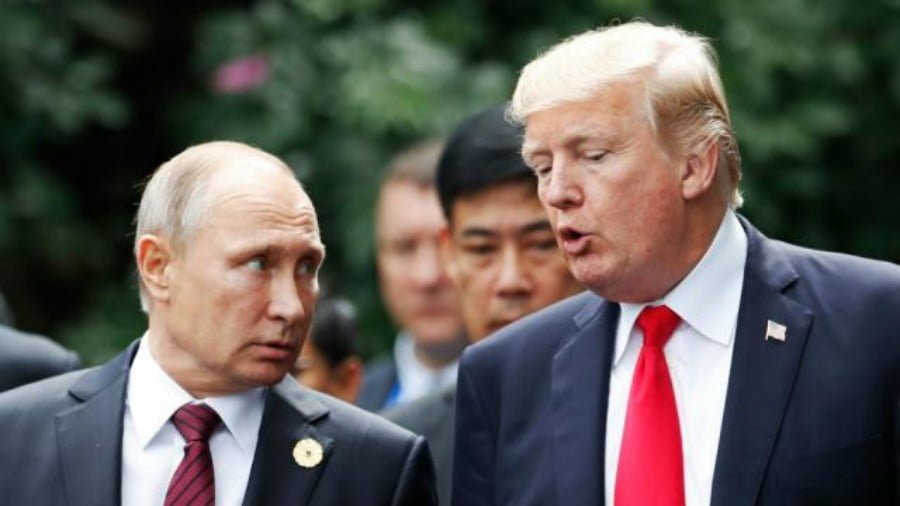Taiwan after the US Elections and the RCEP has been Signed
The outcome of the US elections (whose end is still unclear), and the signing of an agreement on forming a free trade zone involving the participation of 10 ASEAN countries, China, Japan, South Korea, Australia, and New Zealand (the Regional Comprehensive Economic Partnership, or RCEP), are two of the most notable events in the past few years in the political game that has been revolving around Taiwan, meaning in one of the key zones of the Indo-Pacific.
The special significance of these events stems from the fact that they are centered on both leading world powers, which are directly, and competitively, involved in the range of issues surrounding Taiwan. With a new administration coming to power in Washington, some kind of (scarcely radical) progress can be anticipated for US-Taiwan relations. Gradually introducing the RCEP will definitely reinforce China’s position vis-a-vis its policy toward Taiwan.
The Chinese publication Global Times believes that Taiwan, which now finds itself outside the framework of this agreement, will find itself not only in a state of political “isolation”, but also faces prospects of some very specific economic problems. These will be a consequence of both the specifics inherent in the Taiwanese economy, two-thirds of which is accounted for by foreign trade, and the emergence of completely new, unfavorable circumstances that have to do with the process of exporting manufactured products.
This is because, according to the data provided in that same newspaper, 58% of Taiwan’s exports go to RCEP member countries, and the procedure for reducing trade tariffs between them will not cover Taiwan. And this will be a serious challenge for the competitive positions held by those Taiwanese companies that operate in the markets present in those countries.
Beijing is letting is be known that all these problems will automatically disappear as soon as Taiwan “returns to it’s mother’s bosom” in the form of China. Something that Taiwan has no intention of doing, proclaiming: “And we are pushing to join the CPTPP”, meaning the Comprehensive and Progressive Agreement for Trans-Pacific Partnership, which has been in force since February 2019 and includes 5 Asian countries, 4 countries in the Americas, and Australia and New Zealand.
This is a truly prestigious association, and one in which in the middle of 2018 not only some regional countries expressed a desire to join (that very same Taiwan and Indonesia, Thailand, and Colombia), but so did Great Britain, located on the other side of the globe. Moreover, several suggestions of a similar plan were even sounded by the “prodigal dad” of this organization, meaning the United States, and even “during the Trump era”. As they say, at the appropriate time (at the beginning of 2017) they overreacted – it happens to everyone.
Taipei is now paying particular attention to negotiations with the United States on the creating a bilateral free trade zone. Along with that, the significance of the document being developed will be not only both political and symbolic (which today is extremely important for Taiwan in and of itself), but also purely economic in nature. Because the US is the second most important (after the China-Hong Kong package) trading partner for Taiwan. In 2019, bilateral trade exceeded 100 billion USD (about 15% of Taiwan’s total foreign trade). with a positive balance of about 20 billion USD. These are impressive figures for an island with a population of 24 million.
It is worth noting that in the second half of September Taiwan was visited by Under Secretary of State for Economic Growth, Energy, and the Environment K. Krach, whose duties include issues involving foreign economic cooperation. During talks with members of the Taiwanese government, the potential for signing a bilateral trade agreement was also discussed.
This visit was the first important event in the context of the bilateral “economic and trade dialogue”, whose establishment was announced on August 31st by another senior official at the State Department, David Stilwell. At the beginning of November, Taipei reported that (“this month”) a reciprocal visit to Washington would be made by a “small delegation” of representatives from the Taiwanese Ministry of Economic Affairs, which will be hosted there by Keith Krach. What is noteworthy is that three ministers from the Taiwanese government are also supposed to join the negotiations (“in a remote format”).
We should still turn our attention to the “political and symbolic” side of the very fact of that the number of reciprocal visits between US and Taiwan officials is expanding. By doing so, implementing the legislative act (Taiwan Travel Act) is taking place at a practical level, something that was unanimously adopted in February 2018 by the US Senate (and earlier by the House of Representatives), and a month later approved by President Donald Trump.
And this means that these visits have introduced themselves into the legal field, and this, for its part, constitutes an important step in the lengthy, creeping process of attributing a “normal, intergovernmental” nature to American-Taiwanese relations. And this, in turn, corresponds to the course set by Taipei itself to become a “regular” subject involved in international relations. Both of these pose direct challenges to one of the key starting points for how China positions its foreign policy, according to which Taiwan is seen as an integral part of a united China. The last two words represent an unshakable principle that is held by Beijing, and one that Washington pledged to respect in 1979 (when bilateral diplomatic relations were established).
Meanwhile, the PRC is guardedly observing the latest actions taken by the outgoing (as Beijing believes) US administration. Along with the negative attitude it has taken towards the fact itself that negotiations are occurring, and toward the official format of the US-Taiwan trade negotiations, the words spoken by Secretary of State Mike Pompeo that “Taiwan has not been a part of China” managed to evoke an understandable reaction.
It seems that the outgoing (apparently and still) US administration is now busy erecting the kind of barriers in American-Chinese relations that will be difficult to overcome by its successors led by Joe Biden. If these intentions are realized at all on any significant scale.
Even though, after a certain pause, the Ministry of Foreign Affairs of the People’s Republic of China sent Joe Biden its congratulations, the comments in the Global Times (a kind of Chinese foreign policy mouthpiece) about the prospects for relations with the new American administration are generally both reserved and skeptical.
There is some optimism associated with possible individual changes in the political arm of the future administration and, above all else, for the post of US Secretary of State. In particular, what stands out is the fact that in the aforementioned “economic dialogue” between Washington and Taipei, the former is represented specifically by its political arm (meaning the State Department), and not its “professional” agencies, which in this case are the Department of Commerce and the US Trade Representative.
It is worth noting that it was these latter two agencies, and not the State Department at all, that conducted lengthy negotiations with China on resolving problems in the field of US-Chinese trade and economic relations, which culminated in the adopting the so-called Phase 1 Agreement in January 2020. This document is the only positive component in the legacy of its policy toward China that the Trump administration is leaving its successors, albeit an extremely important one. By the attitude it takes toward this document it will be possible to judge the nature of the course the new administration sets as a whole.
In the meantime, the Chinese government agency that is directly responsible for politics as far as Taiwan is concerned is drawing up a “black list of incorrigible separatists” in the environment of Taiwan’s political elite. This list is not made public, and it is not clear what will happen to those that land on it (as the opportunity offers itself). It seems that it does not include President Tsai Ing-wen, who in recent public speeches on this sensitive topic for Beijing has generally expressed himself fairly carefully indeed. This is also manifested in the negative reaction of its administration to what is (suddenly, and in a strange way) a “resuscitated” domestic political rival in the form of the Kuomintang party.
We hope that Madame Taiwanese President continues to behave with the same caution and foresight. And to the benefit of all parties involved in the Taiwan issue one way or another.







